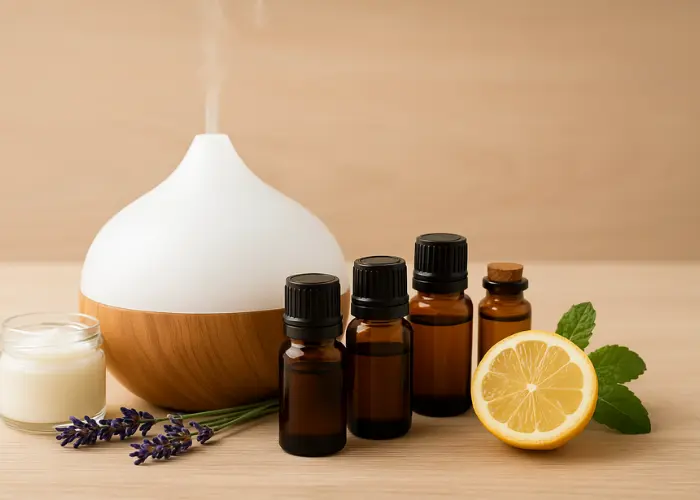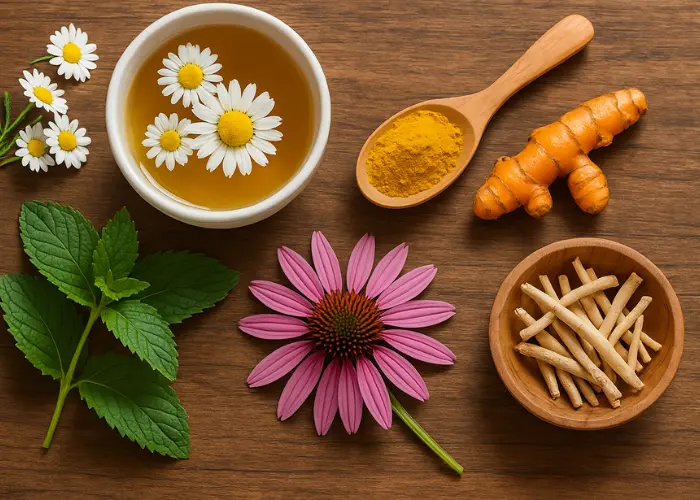Discover how essential oils offer natural relief for stress, sleep issues, and minor aches using safe, time-tested remedies.
In a world where we’re constantly looking for natural ways to feel better, essential oils are gaining popularity—and for good reason. These aromatic plant extracts have been used for centuries to ease stress, support better sleep, and soothe minor discomforts. But what exactly are essential oils, and how can you safely incorporate them into your daily routine?
Let’s break it all down in this friendly guide to essential oils and their role in natural wellness.
What Are Essential Oils, Really?
Essential oils are concentrated extracts from plants, capturing their scent and therapeutic properties. They’re typically obtained through steam distillation or cold pressing, and each oil contains unique compounds that may promote physical and emotional wellness.
For example:
- Lavender is known for its calming effects.
- Peppermint may help soothe headaches and muscle tension.
- Tea Tree is popular for its skin-cleansing properties.
According to the National Institutes of Health (NIH), while more research is ongoing, many people find essential oils helpful as part of a holistic wellness lifestyle.
Everyday Uses for Essential Oils
Let’s explore how these natural remedies can support you day to day—without relying on synthetic products.
1. Stress Relief and Mood Support
When life feels overwhelming, essential oils like lavender, bergamot, or frankincense can help ease the tension. Try:
- Diffusing oils during your wind-down routine.
- Adding a few drops to a warm bath with Epsom salts.
- Using a roller blend on your wrists or neck for on-the-go calm.
2. Better Sleep Naturally
Aromatherapy can play a gentle but powerful role in sleep hygiene. Oils like chamomile and cedarwood are known for their relaxing effects. A few ideas:
- Add a drop of lavender oil to your pillow.
- Diffuse sleep-supportive blends 30 minutes before bedtime.
- Use an oil-infused body lotion for overnight moisture and relaxation.
3. Minor Aches and Tension Relief
Have a tension headache or post-workout soreness? Peppermint and eucalyptus oils are popular for their cooling and invigorating properties. Mix with a carrier oil (like jojoba or almond oil) and massage into:
- Temples and forehead for head tension
- Neck and shoulders after long screen time
- Calves and thighs after exercise
Just remember to avoid using essential oils directly on the skin without dilution, as they’re very potent.
How to Use Essential Oils Safely
While essential oils are natural, they’re also powerful—and should be used with care. Here are a few safety tips:
- Dilute properly: A typical ratio is 2-3 drops of essential oil per teaspoon of carrier oil.
- Patch test new oils to check for sensitivity.
- Avoid ingestion unless under guidance from a qualified professional.
- Keep away from children and pets, as some oils can be harmful to them.
According to the CDC, it’s important to use essential oils responsibly and avoid overexposure, especially when diffusing indoors.
The Takeaway: A Natural Boost to Your Daily Wellness
Essential oils aren’t a cure-all, but they can be a wonderful part of your self-care routine. Whether you’re looking to unwind after a long day, sleep more soundly, or ease everyday aches, there’s likely an oil that can help.
Just remember: consistency, care, and quality are key when using natural remedies like aromatherapy.
Ready to explore the world of essential oils?
👉 Leave a comment below to share your favorite oil or ask a question!



